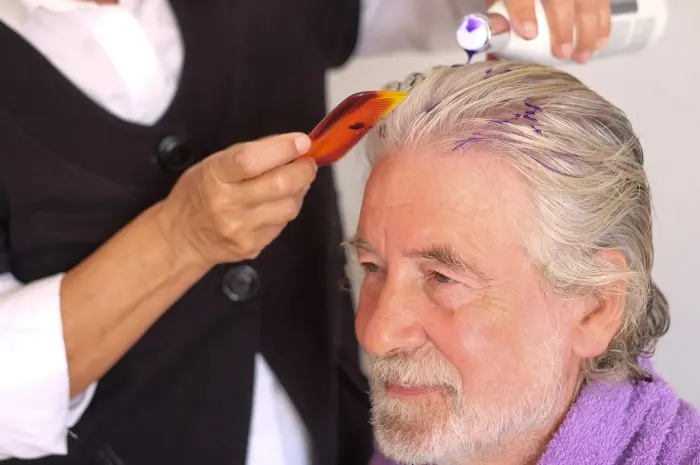Gray hair is often seen as a natural part of aging, but for many, the onset of gray strands can be unwelcome. The desire to maintain youthful, vibrant hair color has led to a search for ways to reverse gray hair.
While the cosmetic industry offers numerous temporary solutions, such as dyes and colorants, the quest for a permanent reversal has intrigued scientists and beauty enthusiasts alike.
Understanding the science behind gray hair and exploring potential solutions can shed light on whether it is indeed possible to reverse this common sign of aging.
As we age, our hair follicles gradually produce less melanin, the pigment responsible for hair color, leading to gray or white hair.
Several factors contribute to this process, including genetics, stress, and overall health. Recent scientific advancements have brought us closer to understanding the underlying causes of graying hair and have opened the door to potential treatments.
In this article, we will delve into the science behind gray hair, examine current research, and explore both natural and medical solutions that might help reverse gray hair.
The Science Behind Gray Hair
Melanin and Hair Color
Hair color is determined by the presence of melanin, produced by melanocytes within the hair follicles.
There are two types of melanin: eumelanin (responsible for black and brown hair) and pheomelanin (responsible for red and yellow hues).
As we age, the activity of melanocytes diminishes, leading to reduced melanin production and the appearance of gray or white hair.
Causes of Gray Hair
Genetics play a significant role in determining when and how quickly your hair turns gray.
If your parents and grandparents experienced early graying, you might be more likely to follow suit.
Additionally, stress, nutritional deficiencies, and certain medical conditions can accelerate the graying process.
For instance, deficiencies in vitamins B12 and D, as well as iron and copper, have been linked to premature graying.
Exploring Potential Solutions

Nutritional Supplements
Addressing nutritional deficiencies through supplements can potentially slow down the graying process.
Vitamins B12, D, and E, along with minerals like iron and copper, are essential for maintaining healthy hair pigmentation.
Incorporating these supplements into your diet may help support melanin production and overall hair health.
Natural Remedies
Several natural remedies claim to reverse gray hair by promoting melanin production.
Ingredients such as amla (Indian gooseberry), blackstrap molasses, and curry leaves are believed to nourish hair follicles and restore natural color.
While scientific evidence is limited, many people report positive results from consistent use of these natural treatments.
Topical Treatments
Topical treatments, including certain oils and serums, can nourish the scalp and hair follicles, potentially slowing the graying process.
Products containing ingredients like rosemary oil, onion juice, and biotin are popular choices for those seeking to enhance hair health and maintain natural color.
Medical Treatments
Advancements in medical research have led to the development of treatments that target the root causes of gray hair.
For example, a study published in 2020 identified a compound called “K(D)PT” that can potentially restore hair color by reactivating melanocytes.
Additionally, treatments like platelet-rich plasma (PRP) therapy and low-level laser therapy (LLLT) have shown promise in stimulating hair growth and potentially reversing gray hair.
Lifestyle Changes
Making certain lifestyle changes can also impact the health of your hair and potentially slow down the graying process.
Managing stress through practices like meditation, yoga, and regular exercise can help maintain overall health and reduce the impact of stress on your hair.
A balanced diet rich in antioxidants, vitamins, and minerals can support hair health and delay the onset of gray hair.
Gene Therapy
Gene therapy is a cutting-edge field that holds potential for reversing gray hair.
By targeting the specific genes responsible for melanin production, scientists hope to develop treatments that can restore natural hair color.
While still in the experimental stages, this area of research offers exciting possibilities for the future.
Conclusion
The desire to reverse gray hair has led to a variety of potential solutions, from nutritional supplements and natural remedies to advanced medical treatments and gene therapy.
While reversing gray hair entirely may still be a challenge, these options offer hope for those seeking to maintain their natural hair color.
By understanding the science behind gray hair and exploring available treatments, you can make informed decisions about how to address this common sign of aging.
Whether you choose to embrace your gray hair or pursue these solutions, maintaining a healthy lifestyle and taking care of your hair will always be beneficial.











